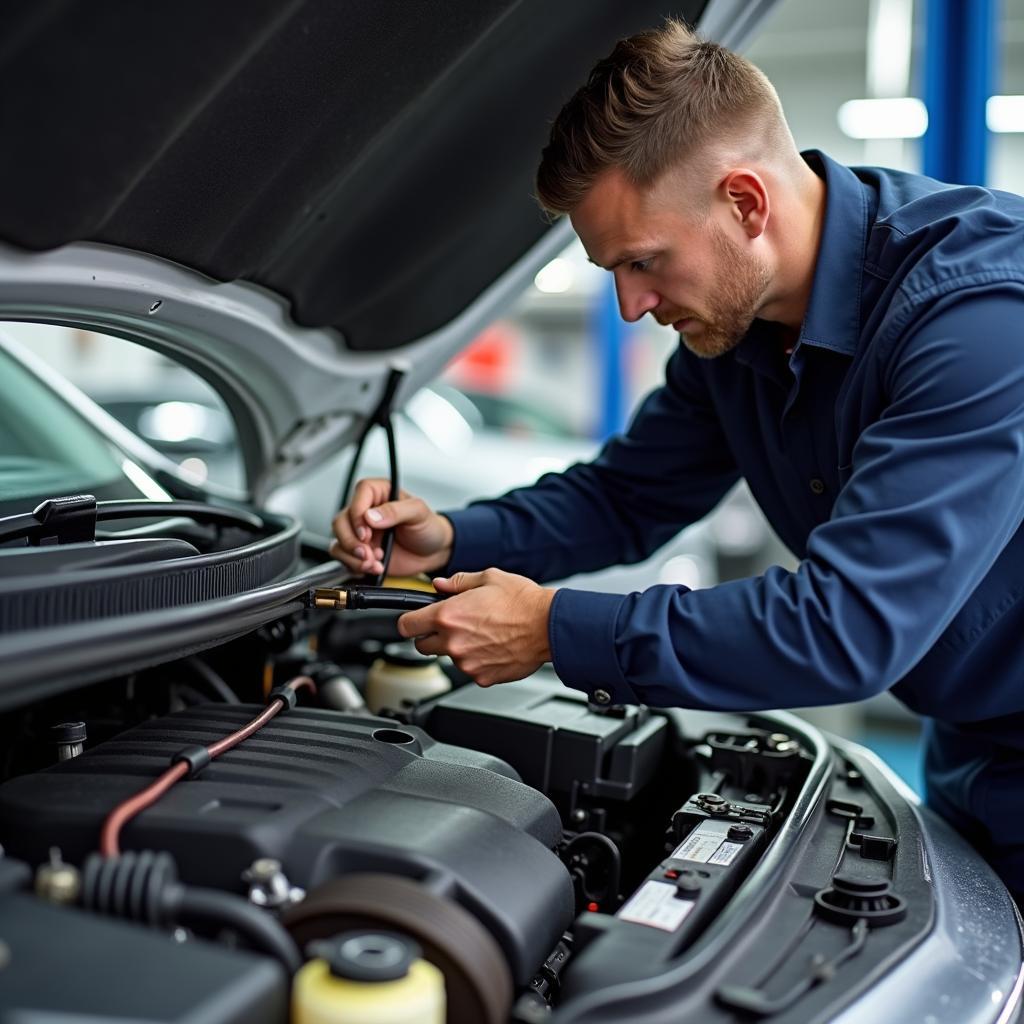Preventive Maintenance Service (PMS) is crucial for keeping your car in top condition. It involves regular inspections, adjustments, and part replacements to prevent potential problems and extend the life of your vehicle. Understanding what PMS encompasses and why it’s important can save you money and hassle in the long run. This article delves into the details of PMS, helping you make informed decisions about your car’s care. We’ll explore what’s involved, why it’s beneficial, and how it differs from emergency car services. Does car drive better after service? Absolutely! Let’s explore why.
A PMS schedule is designed to catch minor issues before they become major headaches. This includes checking fluids like oil and coolant, inspecting brakes and tires, and replacing worn parts like filters and spark plugs. By adhering to a PMS schedule, you’re proactively addressing potential problems, saving you from costly repairs down the road. Think of it as an investment in your car’s longevity and your peace of mind. You can find more information on car maintenance at what is pms car services.
Why is PMS Important for Your Car?
Regular PMS offers numerous benefits, contributing to a safer and more enjoyable driving experience. It not only prevents breakdowns but also improves fuel efficiency, enhances performance, and maintains your car’s value.
- Safety: Regular brake inspections and tire rotations ensure your car is safe on the road.
- Reliability: PMS reduces the risk of unexpected breakdowns and costly repairs.
- Resale Value: A well-maintained car with a documented service history commands a higher resale price.
- Performance: Regular tune-ups and fluid changes optimize engine performance and fuel efficiency.
What Does a Typical PMS Include?
While the specific tasks vary depending on the car’s make, model, and mileage, a typical PMS includes the following:
- Oil and Filter Change: Essential for lubricating the engine and preventing wear.
- Fluid Top-offs: Checking and replenishing coolant, brake fluid, power steering fluid, and windshield washer fluid.
- Brake Inspection: Examining brake pads, rotors, and calipers for wear and tear.
- Tire Rotation and Pressure Check: Ensuring even tire wear and optimal fuel efficiency.
- Filter Replacements: Replacing air, fuel, and cabin filters to improve engine performance and air quality.
- Spark Plug Replacement: Ensuring efficient combustion and fuel economy.
- Belt and Hose Inspection: Checking for cracks, wear, and proper tension.
How Often Should You Get a PMS?
Most manufacturers recommend a PMS every 5,000 to 7,500 miles or every six months, whichever comes first. However, it’s best to consult your car’s owner’s manual for specific recommendations. If you frequently drive in harsh conditions, such as extreme temperatures or dusty environments, more frequent PMS may be necessary. Understanding the specific needs of your car will help ensure its longevity. Learn more about car service benefits at will my car run better after a service.
PMS vs. Emergency Car Services
PMS is proactive, focusing on preventing problems before they occur. Emergency car services, on the other hand, address immediate issues that require immediate attention, such as a flat tire or a dead battery. While both are essential for car maintenance, PMS helps avoid the need for emergency services in many cases. More information on emergency services can be found at what are emergency service in cars.
“Regular PMS is like brushing your teeth – it’s a small investment that prevents bigger problems down the road,” says John Smith, Automotive Engineer at CarCare Experts. “It not only keeps your car running smoothly but also ensures your safety and peace of mind.”
What is PMS in Car Service Scheduling?
Scheduling your car’s PMS is simple. Most dealerships and repair shops offer online scheduling tools or you can call and make an appointment. Be sure to mention your car’s make, model, and mileage to ensure they can prepare accordingly.
“A well-maintained car is a happy car,” says Jane Doe, Senior Mechanic at Auto Solutions. “And a happy car makes for a happy driver.” Find more details about PMS at what is pms in car service.
In conclusion, PMS is an essential aspect of car ownership, ensuring its longevity, reliability, and safety. By understanding what PMS entails and adhering to a regular schedule, you can avoid costly repairs and enjoy a smoother, safer driving experience.
FAQ
- What does PMS stand for in car services? PMS stands for Preventive Maintenance Service.
- Why is PMS important? PMS helps prevent breakdowns, improves fuel efficiency, and maintains your car’s value.
- How often should I get a PMS? Consult your owner’s manual, but typically every 5,000-7,500 miles or six months.
- What is included in a PMS? Oil change, fluid top-offs, brake inspection, tire rotation, and more.
- What’s the difference between PMS and emergency car service? PMS is preventative, while emergency service addresses immediate issues.
- Where can I get my car serviced? Dealerships and repair shops offer PMS.
- How do I schedule a PMS? You can usually schedule online or by phone.
Need more information about maintaining your car’s top performance? Check out our article on does car drive better after service. We also offer guidance on various car maintenance topics throughout our website.
For immediate assistance or to book a service, please contact us via WhatsApp: +1(641)206-8880 or Email: [email protected]. Our 24/7 customer support team is ready to help.


